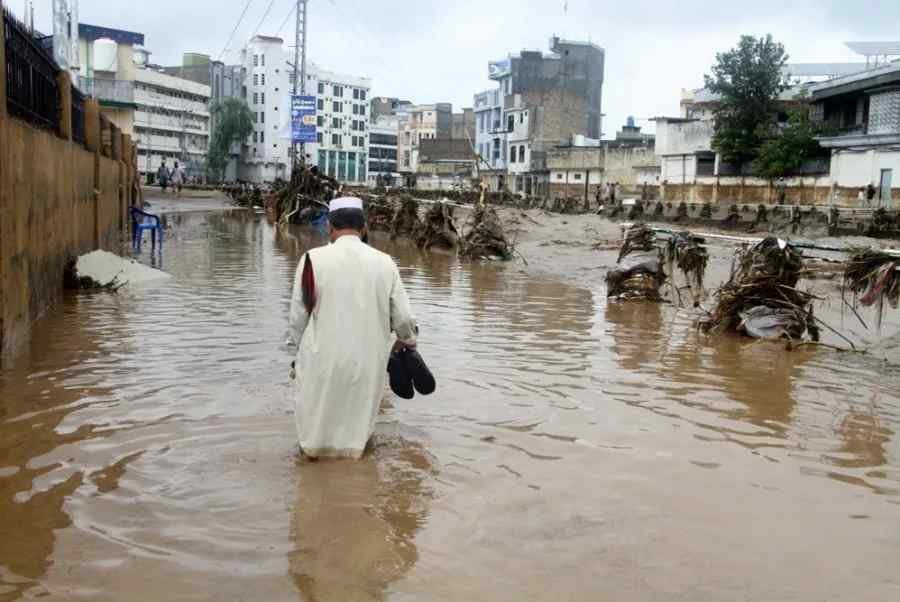Severe monsoon rains have unleashed catastrophic floods across Khyber Pakhtunkhwa, where at least 194 people lost their lives in the past 24 hours, according to the National Disaster Management Authority (NDMA).
The fresh wave of destruction brings the province’s overall death toll to over 300, with dozens injured and hundreds of homes swept away or reduced to rubble. Officials warn that the figure could rise further as rescue workers continue searching for those still missing.
A breakdown of the devastation
NDMA data shows that Friday’s casualties included 158 men, 19 women, and 17 children. The deluge also destroyed 118 homes and wiped out 43 head of livestock, compounding losses for families already struggling.
Rescue operations remain underway across multiple districts, with teams working against washed-out roads and unstable terrain to reach remote communities.
Relief measures under way
Responding to the disaster, Prime Minister Shehbaz Sharif directed NDMA officials to oversee relief efforts from Peshawar. The agency says food, medical supplies, and shelter materials are being dispatched in coordination with provincial authorities and the military.
“The focus right now is saving lives and delivering immediate relief,” an NDMA spokesperson emphasized, noting that operations are being monitored around the clock.
Warnings of landslides and travel restrictions
Authorities have cautioned residents, particularly in northern KP, about the heightened risk of landslides. Locals and tourists alike have been strongly advised to avoid travel to high-risk areas for the next several days. NDMA urged people to stay away from rivers, streams, and unstable slopes until conditions stabilize.
Army joins relief operations
The Pakistan Army has also deployed troops to flood-hit districts, working alongside civil administration to clear blocked roads and restore access. Military officials pledged continued support until normalcy returns, stressing that the armed forces “stand shoulder to shoulder with the people of KP during this crisis.”
